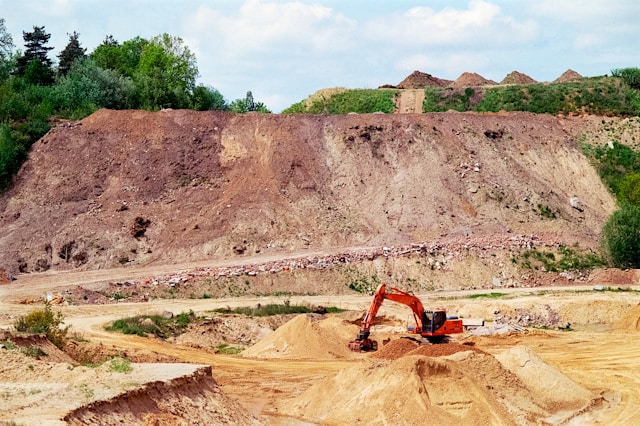Commercial excavation is a science that requires precision and large machinery. This is a crucial part of construction projects that can significantly impact the building’s final foundation.
Excavation contractors work with residential and commercial builders and must adhere to specific regulations, though these may differ slightly. They are responsible for site clearing, grading, trenching, and more.
Planning
Excavation is one of the most critical aspects of construction and requires a lot of planning before shovels touch the dirt. This is why hiring professional commercial excavation services Houston, TX for this type of work is essential rather than trying to do it yourself. Any mistakes in this area can have costly consequences.
Commercial jobs typically require more intense excavation services than residential ones. Commercial buildings have heavier materials like steel and concrete than the average lumber-framed home. Also, they may have multiple underground levels or parking garages that require deeper piles.
In addition to preparing a building site, these services can dig trenches for sewer systems, water, and gas lines. They can also help with other landscaping projects by removing trees, bushes, and rocks and leveling the ground. They can even remove old swimming pools, which saves homeowners money on maintenance. This is much cheaper than replacing the pool with asphalt or concrete.
Preparation
Commercial excavation isn’t just about clearing away materials and contaminants. It also involves preparing the soil to support the weight of the building being constructed on it. It can include adding or removing materials, as different kinds of soil behave differently when compacted.
This is especially important for non-residential construction projects. While homes are framed with lumber, industrial buildings are often made with steel and concrete and weigh more. Commercial building sites also require more intensive grading or deeper piles to provide stability.
It can be incredibly complicated if the site has been used for different commercial purposes in the past, like a former gas station. Repurposing such a site can involve hazardous elements, including contamination, underground piping, and tanks that must be removed and safely disposed of.
Cutting and Filling
Cut and fill excavation involves leveling the ground by removing excess material and adding dirt to create an even surface. The aim is to conserve mass as much as possible. I have more cut than fill, resulting in project managers having to find somewhere to dump the extra rock and soil, and having more fill leads to them needing to bring in dirt from another location. It increases material, labor, and equipment costs.
The goal is to ensure that the land has a sufficient load-bearing capacity to support the building being constructed. Commercial excavation services use a variety of tools to achieve this. For instance, they may use rollers or compactors to increase the density of the fill material and ensure stability.
They also use fill dirt to cover any low spots in the excavation area and prevent mudslides. Then, they grade the filled dirt to ensure it rises where necessary and is level. They might even add topsoil to promote the growth of grass and plants.
Excavation
Commercial excavation services include many of the same steps as residential excavation but on a larger scale. It includes locating and marking utility lines before digging, cutting, and filling to reshape the land and removing large items like tree stumps or a rusty car lift.
Once a site has been cleared, contractors can begin the footer and foundation construction process. They can also install drainage systems to prevent soil erosion and even repair slopes prone to slippage.
Erosion control is essential to any construction project, as it can cause costly structural damage to buildings and other outdoor structures. Commercial excavation contractors can also stabilize land to ensure the building’s foundation will not shift over time, which is integral to making a structure stable and long-lasting. Additionally, these contractors can help install septic systems and ensure the site is leveled correctly to avoid water draining or flooding.

